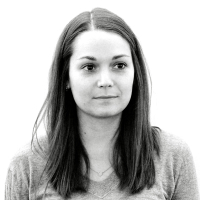Alex sat behind several rows of empty seats in Maryland’s Gaylord Convention Center’s main ballroom on Friday, listening intently to the pro-life panel discussion ahead of her, looking down at her sparkly encased iPad only occasionally between applause and nods.

“I think in this day and age women deserve better,” the 24-year-old Alabama transplant said at the end of the CPAC panel, declining to give her last name because she now works in D.C. politics. “The anti-abortion movement needs to emphasize to young women that we care about you, we want to offer you other options and prevent the damage that abortions can have on women. I think this panel did a good job of explaining that.”
The panelists, who took the stage following Mitt Romney’s lukewarmly anticipated speech, were here to talk about abortion and the pro-life movement’s strategy for reversing the Roe v. Wade Supreme Court decision 40 years after the ruling.
Moderator Mercy Schlapp, principal at the public policy consulting firm Cove Strategies, identified women’s health groups like Planned Parenthood and the pro-choice organization NARAL as “the enemy.” She also introduced all of the female speakers by listing their titles by emphasizing the number of children they’ve given birth to.
Marjorie Dannenfelser, president of the pro-life organization Susan B. Anthony’s List—but, more importantly, the mother of five—argued that Republicans lost the November election because of “unilateral disarmament on the issue of abortion” by Democrats. “We allowed the left to define women’s health as abortion,” she said, riling up the crowd by denouncing the “war on women” and instructing the female portion of the audience to “not allow these liberal women to claim our voices!” drawing resounding cheers from the sparsely populated crowd.
Next up was Ann Wagner, a freshman in the U.S. House of Representatives from Missouri, but, according to Schlapp, “her most important title is wife of Ray and the mother of three beautiful, rambunctious children.”
“Forty years ago, the Supreme Court lit a spark that grew into a flame and the fire spread,” said Wagner. “That decision outraged and united many of us, and we’ve fought for 40 years to keep that issue at center stage. And though we haven’t seen the Supreme Court overturn Roe v. Wade, we’ve seen a lot of progress.”
She emphasized the importance of informing women of alternatives to abortions as well as warning them of the potential mental and physical side effects of a terminated pregnancy. “Everyone talks about the right to choose, but no one talks about the implications or scars of that choice,” she said.
The panel wasn’t ladies only, of course. Focus on the Family Vice President Tim Goeglein and U.S. Rep. Randy Forbes (R-VA) were also present to chide the 40-year-old pro-choice legislation. It was not mentioned whether they have children or how many.
Forbes admitted to the audience that he’d just read Roe in its entirety for the first time and was shocked to find that it is “as infamous as it is illogical, impractical, and unscientific. It turns American medicine of even 1973 on its head.” As the pro-life movement grows younger and larger every year, Forbes said, he hopes to see legalized abortions “placed on the trash heap of history.”
He then began talking about Lent and the theme of his speech suddenly waxed religious—something Alex thinks the movement should shy away from if it’s going to attract a wider constituency.
“I think taking religion out of the argument would probably increase the popularity of the movement,” Alex suggested. “Muslim, Jewish, Buddhist women—any woman—can be affected by this, not just Christian women. The movement has to realize that there are women who don’t believe in Christianity who still want to be a part of this.”






